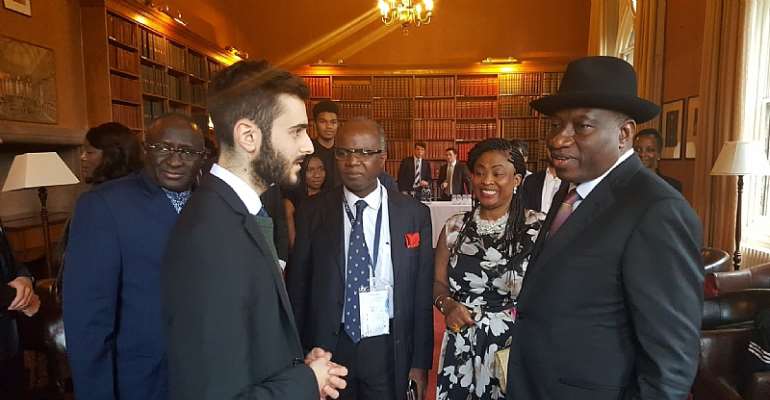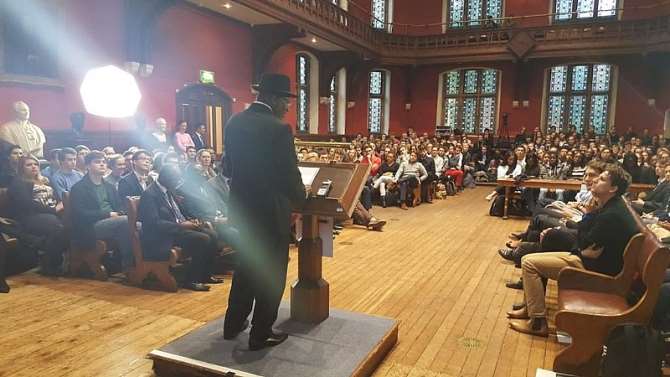Jonathan at Oxford University makes case for youth empowerment …I worked for next generation, not next election, says ex-President

Former President Dr Goodluck Jonathan yesterday defended his administration's Transformation Agenda stressing that it was designed to engage the latent potential in the entire nation, as well as
stimulate and enable higher productivity.
Jonathan who stated this yesterday in a lecture at the Oxford Union of the Oxford University in the United Kingdom, also said that while serving as President of Nigeria, he worked for the next generation and not for the next elections, as a means of ensuring that Nigerian children had a promising future.
He said: 'While serving as President of Nigeria, I worked for the next generation and not for the next elections. Somebody must sacrifice and work for the next generation otherwise your children’s children will suffer the same predicaments as you have.
Jonathan who was speaking to students of Oxford University on youth entrepreneurship, further pointed out that quality education and youth empowerment were at the heart of Africa's growth and development.
He said further: 'I am excited to be in the midst of some of the World’s future leaders to discuss issues relating to youth empowerment and entrepreneurship. The issue of youth entrepreneurship in Africa is very critical, as Africa is the only continent in which we will witness a population boom. Most violent crises in Africa can be traced to a lack of education and opportunities among its teeming youth population. Studies have revealed that there is a symbiotic relationship between youth unemployment and youth restiveness.'
'As a leader, you can decide through your policies to educate the youths, or face the consequences of failing to do so. The Transformation Agenda was conceived to engage the latent potential in the entire nation, and to stimulate and enable higher productivity.'
The former President emphasised that his Administration came up with various programmes to encourage young entrepreneurs including the youth enterprise with innovation in Nigeria (YOUWIN). We reformed the institutions and introduced various mechanisms to stop the problems associated with in our country without much publicity.
'We may not have been perfect, but we did our best, and our best yielded an era of unprecedented economic growth for Nigeria. A growth that proved the truism that a Nation’s wealth is not underneath the ground but between the ears of her people. Nigeria was rated as the largest economy in Africa and the 23rd in the world by the World Bank and the IMF, with a GDP above US$570 billion.'
He stated further: 'We identified Nollywood as a sector that can employ many young people and provided a grant of $200 million to boost the industry. As a result, Nollywood became a major contributor to our GDP and in 2014, the industry contributed 1.4% to our GDP.
Jonathan also recalled that as Governor of Bayelsa State and later the President of Nigeria, he asked himself some critical questions:
'Why do individuals that grow up in similar circumstances end up differently, with some as successes and others as failures? Why are some nations rich and some poor? Is the wealth of nations a result of
geography, weather, culture, destiny? What could a leader do to effectively lift a people out of the depths of poverty, and enable them to achieve prosperity?
'After much soul searching, I concluded that: wealth is a creation of the human mind properly prepared by education. Any nation that does not spend its wealth and resources to develop the capacity of its youths will be forced to use them to fight insecurity'
He challenged 'contemporary African leaders to see youth entrepreneurship as a collective project transcending national boundaries, adding that 'despite incredible challenges, Nigerian youths are achieving great things and placing Nigeria positively in the world map. They inspire us.'

